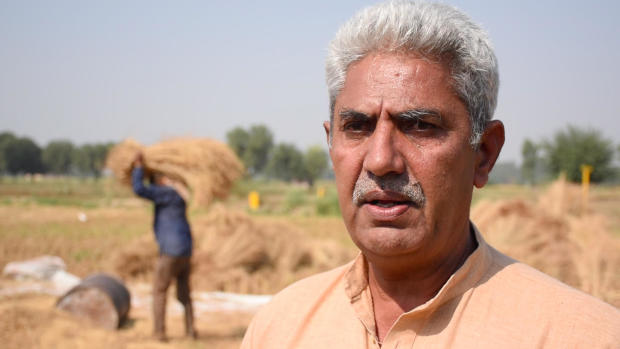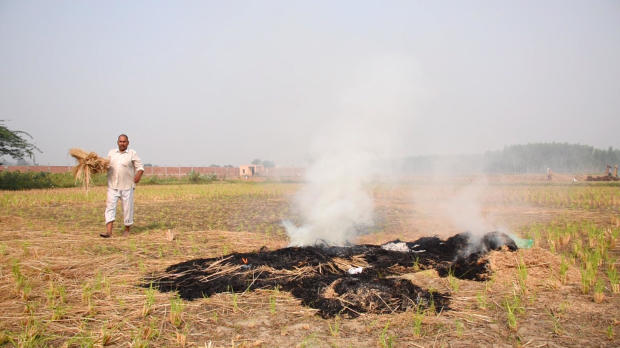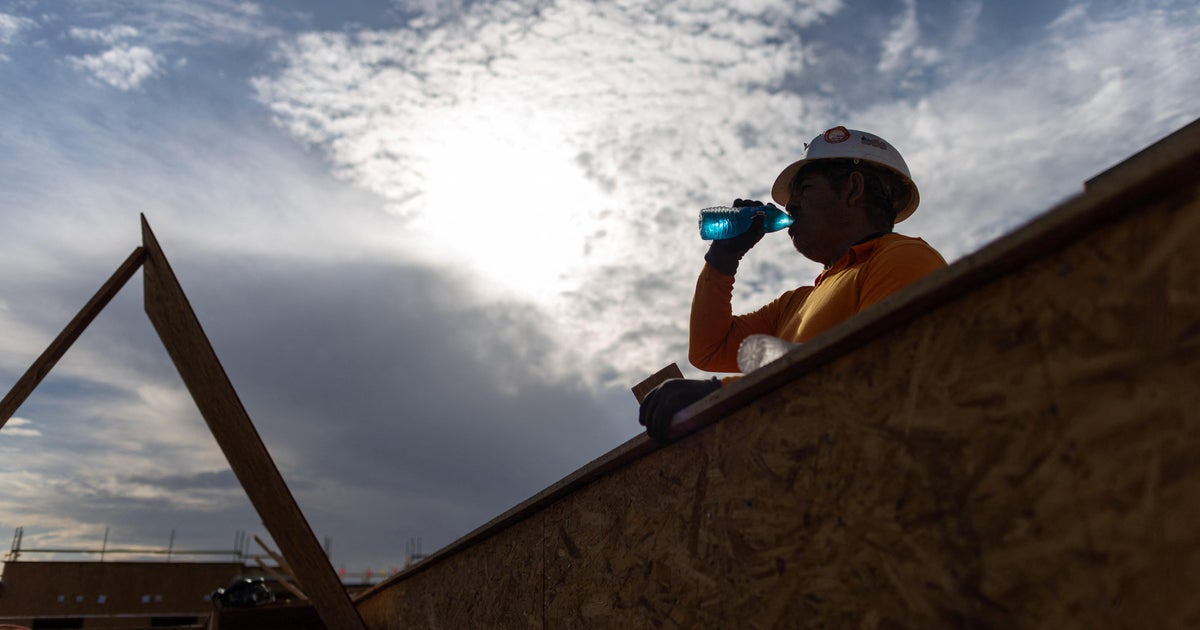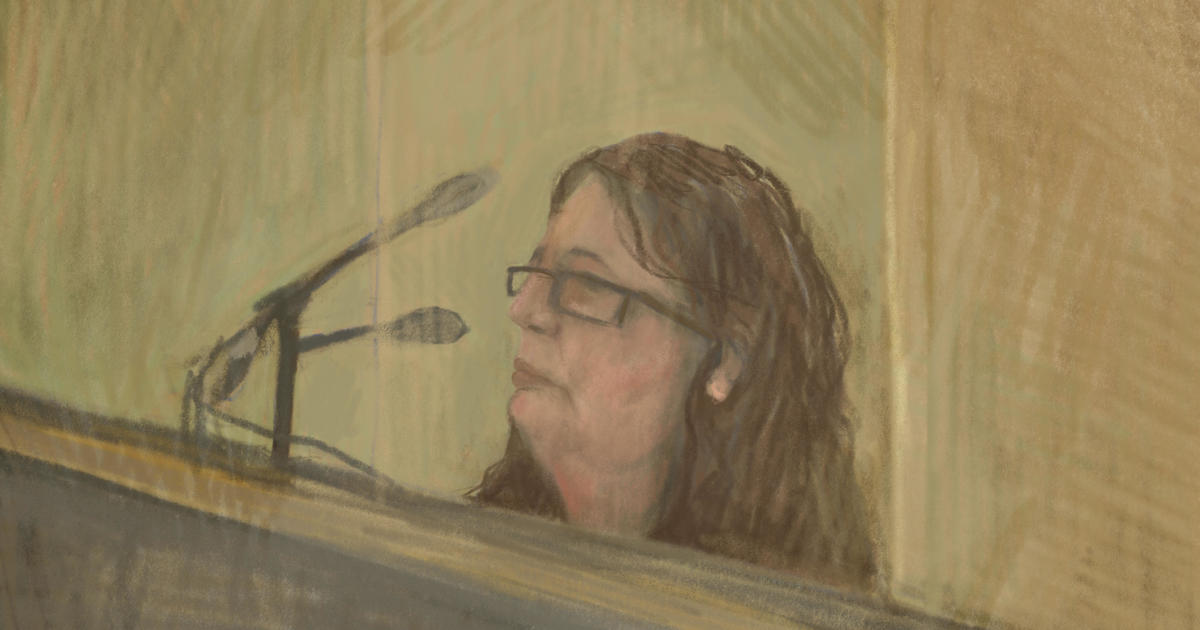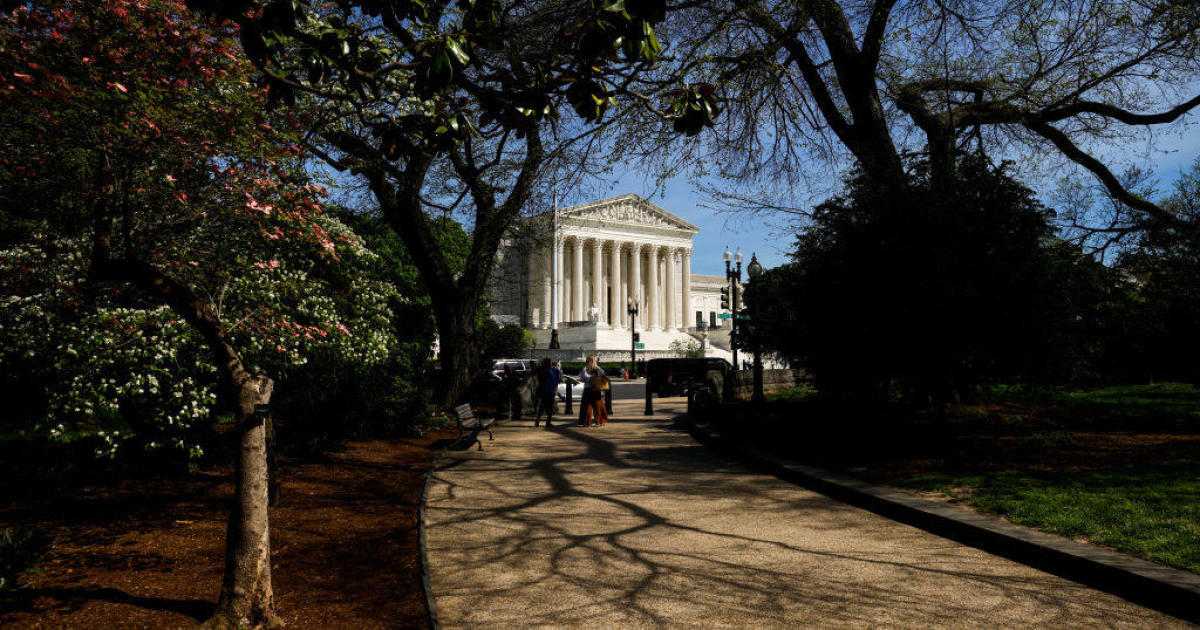Delhi smog crisis at peak, but farmers keep setting fires and demand benefits
Haryana, India — Farmers in Delhi's three neighboring states have been given a lion's share of the blame for the disastrous air pollution in the Indian capital. Despite a ban by the country's Supreme Court, many farmers have continued setting their crop stubble on fire for the past couple of weeks in order to prepare the land for the new crop.
It has smothered Delhi in a dense blanket of smoke and haze for weeks — it's always the worst this time of year due to the crop refuse fires, fireworks and calmer winds. The Delhi government had to shut schools, suspend construction and ration cars on roads to deal with the high pollution levels.
Low visibility due to the smog also forced dozens of flights to be canceled or delayed over the weekend and helped tarnish images of a popular Hindu religious festival.
"You don't have a plan"
On Wednesday, the Supreme Court chastised the governments of three of India's states, Haryana, Punjab and Uttar Pradesh, for failing to stop the farmers in their regions from burning the summer crop stubble and for putting the blame entirely on the farmers themselves. "You are responsible," the court told state administrators in a scathing dressing-down in the courtroom.
The court warned that the "time has come to punish (government) officers." The state representatives said they lacked the resources and funds to monitor hundreds of thousands of farmers living in their constituencies.
The court's justices were not swayed. "Stubble burning has to be controlled," they said. "You don't have funds, you don't have a plan, then you don't have the right to be the in the chair."
Farmers speak out
CBS News met several farmers in Haryana state who said there was a simple answer to why, even after an official ban, they continue to set their crop residue on fire: It's what they can afford to do. "You just need a one-rupee matchbox to set the field on fire but 3,000 rupees (about $43) per acre of land to mix the stubble into the soil and prepare the land for the next crop," farmer Deepak Malik told CBS News.
The machines used to harvest the paddy crop leave strands or bundles of crop waste in the fields. Farmers said weeding it out or grinding it up small enough to work back into the soil takes more time and money than they can afford to spend.
So they torch it, as they always have. "The only way to manage the stubble is by setting it on fire," Krishan Chander, a farmer in Haryana's Bhainswal village, told CBS News. "We need better machines at subsidized rates that can cut the stubble into smaller strands and mix it with soil."
"Although the government does give a subsidy on tilling machines like rotavators, small farmers who have only a couple of acres of land still can't afford them," Malik said. "So the farmer is left with no option but to burn the stubble."
Kurinji Selvaraj, a research analyst at the Council on Energy, Environment and Water, a Delhi-based think tank, told CBS News the farmers see machines as a poor value in terms of cost and yield — the expensive devices sit idle for most of the year. Chander believes the government should give farmers benefits "like some amount of money per acre of land to convince them not to burn the stubble."
India's Supreme Court agrees with him. On Wednesday, the court asked the three states to give 100 rupees ($1.40) of financial assistance for every 220 pounds of crop waste to small farms to help deal with the stubble.
The court also asked the states to provide machines to rent and the money to run those machines to smaller-scale farms. "You want poor farmers to be punished. Punishment of farmers is not a solution," the court told the governments.
More fires since the ban
An analysis of satellite data by the Council on Energy, Environment and Water shows the number of farm fires in Delhi's three neighboring states increased from more than 4,900 Monday, the day they were banned, to just over 5,200 Tuesday. A NASA satellite picked up over 14,000 open fires in the three days from Monday to Wednesday, averaging more than 4,800 per day, according to the think tank.
More than 90 percent of these fires were in Punjab. But on Wednesday, CBS News saw scattered fires burning in Haryana.
Rohtash, a farmer in Sonepat, Haryana, who didn't want to give his full name, at first didn't want to talk as he burned his crop waste, fearing a fine, but later he dismissed concerns that fires like his were causing major problems. "Only a little bit," he said. "Pollution is caused by industry. This is not pollution."
Another farmer saw CBS News approaching and quickly drove his tractor over the smoldering crops in his field to snuff the flames.
Changing winds
A closer look at the data of farm fires and air pollution levels this week shows a change: In Delhi, air pollution levels have dropped since Sunday, which was the worst day the Indian capital had seen in three years despite the massive increase in the number of fires in the neighboring states.
Where did all the smoke from the farm fires in Punjab go? "This is mainly due to the change in wind direction from north-westerly to south-easterly, which allowed Delhi's air to slightly improve," said Selvaraj, the analyst from the Council on Energy, Environment and Water.
That could explain the thick layer of smog that covered Lahore in neighboring Pakistan on Wednesday night. The sprawling city's government had to close all the schools and issue a high alert for hazardous air conditions.
"If all that smoke would have come to Delhi, then the last few days would have been worse," Selvaraj said.
